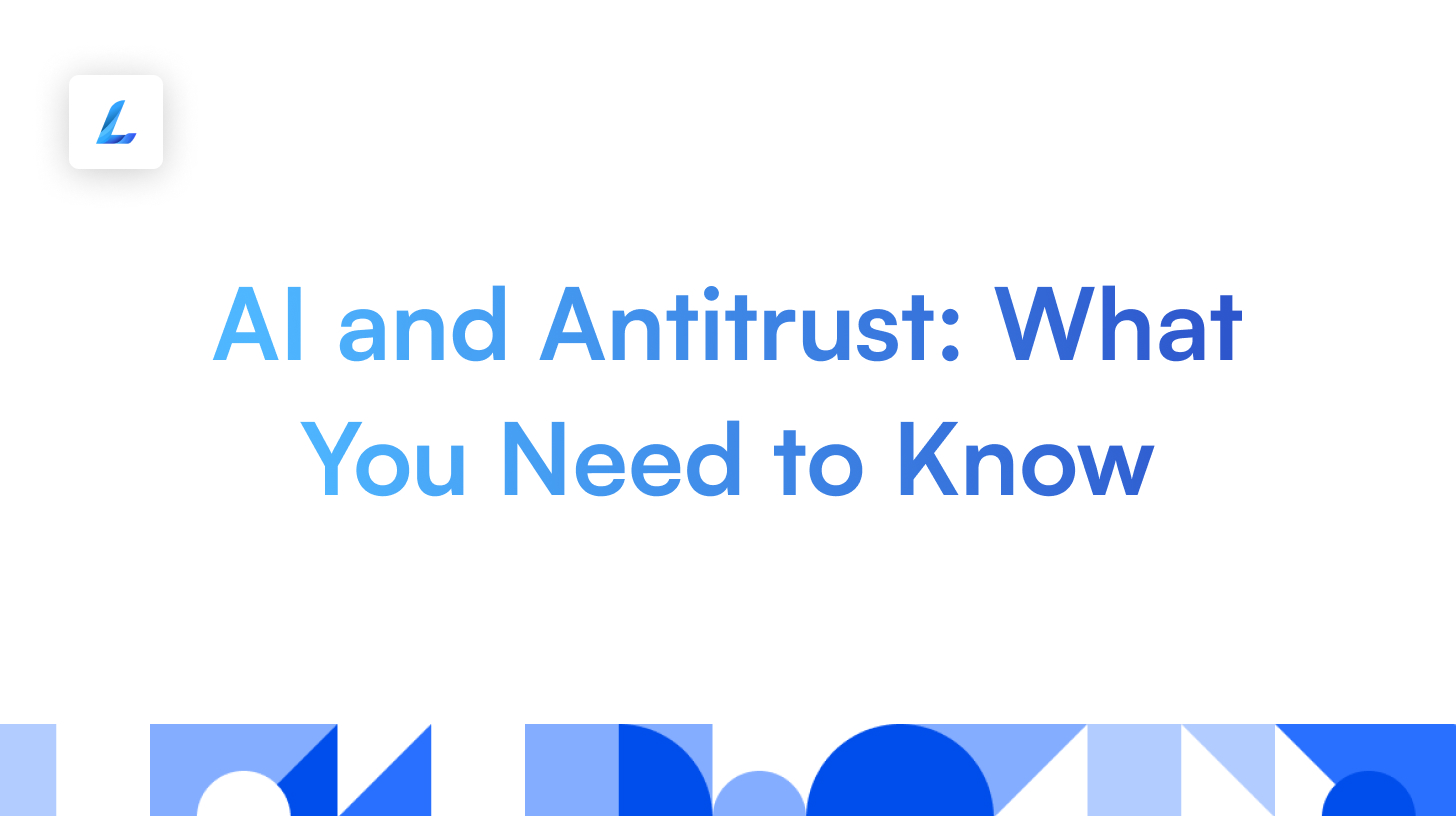In 2022 alone, global antitrust fines reached an astonishing $10 billion, a figure that starkly showcases the high stakes and intricate balancing act businesses face between aggressive competition and stringent compliance. In this high-wire arena, a rising star emerges from the technological frontier: Artificial Intelligence. AI and antitrust law presents a new paradigm for conceptualising, drafting, and ensuring the robustness of antitrust contracts.
This technological marvel isn’t just about mechanised efficiency; it’s about weaving intelligence and foresight into the very fabric of legal agreements. As companies worldwide grapple with ever-evolving antitrust regulations and the increasing complexities of global commerce, the fusion of AI and legal expertise provides a beacon of hope. Dive with us into this captivating exploration of AI’s transformative role in automating and reviewing antitrust contracts and fortifying their compliance mechanisms.
Basics and Definitions
Antitrust laws, frequently termed as competition laws, play a paramount role in ensuring a balanced and just marketplace. Rooted in principles of fairness and consumer protection, these regulations counteract predatory business behaviours and pave the way for a competitive ecosystem. Their overarching objective is to prevent any single company or group of companies from gaining undue market dominance or using underhanded tactics to distort free and fair competition.
Delving deeper into the fabric of antitrust regulations, several critical terms emerge:
- Monopoly: This refers to the situation where a single entity or company has exclusive control over a specific product or service in the market. Such dominance can stifle innovation and can lead to higher prices for consumers due to the lack of competition. Monopolies are often frowned upon because they diminish consumer choices and can exploit their position to the detriment of the market.
- Cartel: In essence, a cartel is a coalition of businesses that come together with the intent to control production, market share, or prices. Such coordinated actions can hinder market competition and often result in unfavourable outcomes for consumers, such as inflated prices or limited product availability.
- Price Fixing: This anti-competitive measure sees companies collaboratively setting prices, bypassing the natural ebb and flow of market forces. Such agreements, whether explicit or tacit, can artificially inflate prices, putting consumers at a disadvantage.
The gravity of these terms underscores the importance of antitrust laws. In a rapidly evolving business world, where mergers, collaborations, and global operations blur traditional market boundaries, these laws stand as vigilant sentinels, ensuring that the market remains a level playing field for all.
Relevant Cases for Antitrust Law
The realm of antitrust has been the stage for many landmark cases that have reshaped the business world and set legal precedents. Among these, the U.S. Department of Justice vs. Microsoft in the late 1990s stands out. In this high-stakes battle, Microsoft faced allegations of monopolistic practices, particularly regarding the integration of its Internet Explorer browser with its Windows operating system. The court’s conclusion that Microsoft held and abused monopoly power has since become a touchstone in antitrust discussions.
Similarly, the EU’s crackdown on Google, particularly concerning its Android operating system and online shopping services, demonstrated the massive influence and reach of antitrust regulations. Google faced hefty fines, and the case ignited discussions about the role of big tech in modern markets.
Had AI been extensively employed during the drafting of initial contracts or business agreements in these instances, potential pitfalls or areas of contention might have been spotted early on. Such proactive AI-driven analysis could simplify contracts to prevent monopolistic ambiguities, possibly leading to quicker resolutions or even sidestepping litigation entirely. As we look back, these cases not only underscore the importance of vigilance in antitrust matters but also hint at the transformative potential of AI in shaping future legal landscapes.
AI’s Integration into the Legal Field
AI’s prowess in the legal domain, especially in the context of antitrust law, marks a paradigm shift. Traditionally, drafting and reviewing contracts have been labor-intensive tasks, often fraught with human oversights. With the advent of AI, these processes are undergoing a radical transformation. Machine learning algorithms can predictively model potential antitrust pitfalls in contracts, ensuring businesses remain on the right side of the law.
Moreover, AI’s ability to analyze contracts doesn’t just stop at surface-level evaluations. Deep learning models can delve into intricate contract clauses, extracting nuances and correlations that might be elusive to even seasoned legal experts. Such a capability is invaluable in preempting monopolistic tendencies in business agreements. By flagging and recommending revisions to contentious clauses, AI aids in proactively building contracts that are both robust and regulatory compliant.
Legaliser AI Legal Assistant
In this context of AI-driven contract evolution, Legaliser stands out. Designed specifically with antitrust intricacies in mind, this tool is more than just a contract reviewer; it’s a future-focused legal companion. By employing advanced algorithms, it not only identifies potential regulatory mismatches but also suggests optimisations.
Every clause undergoes rigorous scrutiny to ensure it harmonises with prevailing antitrust norms. Its intuitive interface coupled with in-depth analytical capabilities makes it an indispensable asset for modern businesses. And for those curious about its prowess, an exclusive free trial offers a firsthand experience of its unmatched capabilities.
Conclusion
The landscape of antitrust law is ever-evolving, reflecting the dynamism of global business operations. Contracts that govern these businesses aren’t mere documents; they’re the foundational pillars ensuring market competitiveness and fairness. As businesses intertwine with technology, AI emerges as a pivotal force, redefining contract drafting and analysis.
Tools like the Legaliser AI Legal Assistant aren’t just technological marvels; they’re emblematic of a new age in legal proceedings, where precision, efficiency, and foresight reign supreme. Embracing this AI-driven approach isn’t a mere upgrade; it’s a strategic move towards a future where legal intricacies are navigated with unparalleled confidence, ensuring businesses not only survive but thrive in the ever-complex world of antitrust law.
